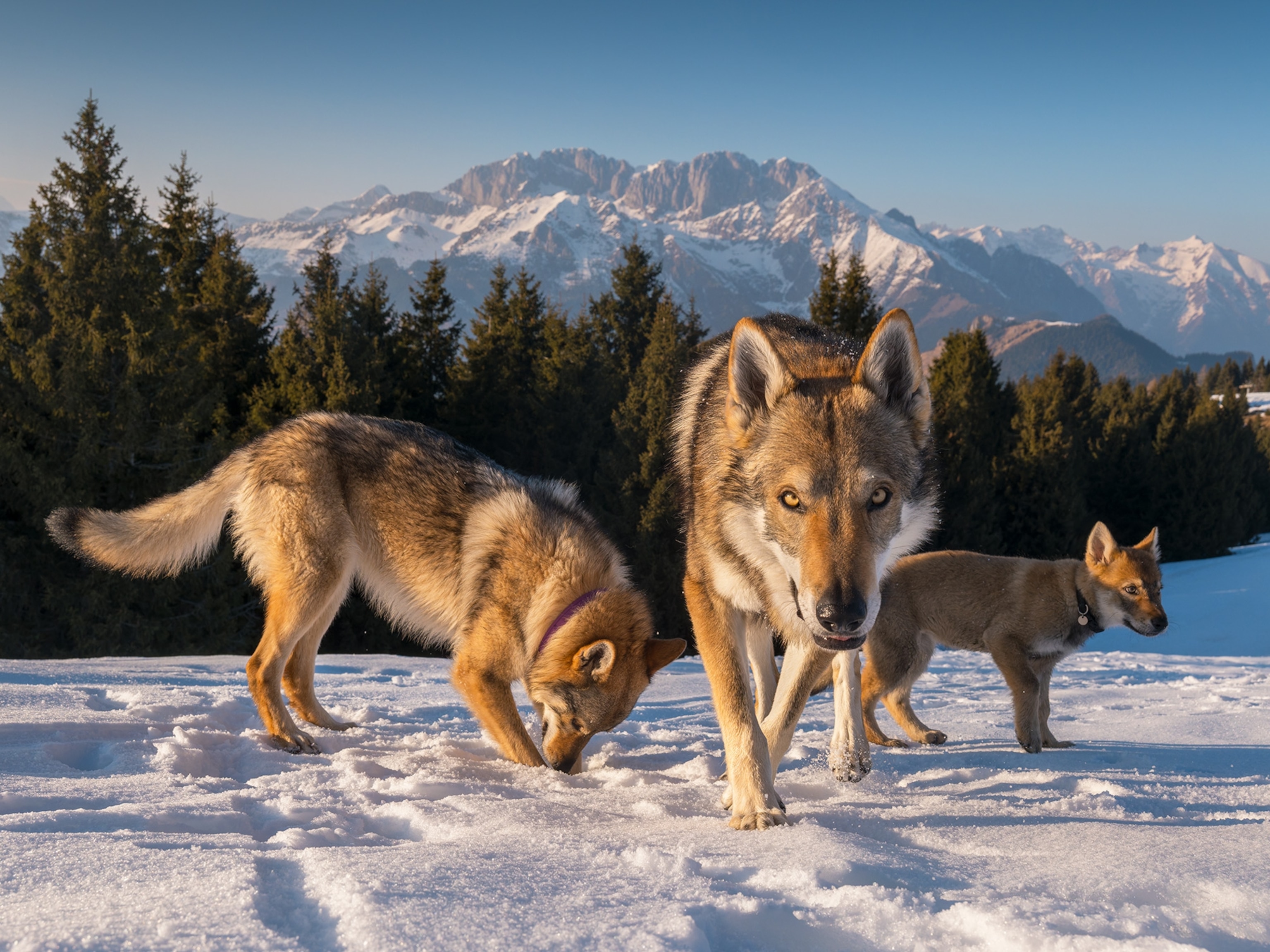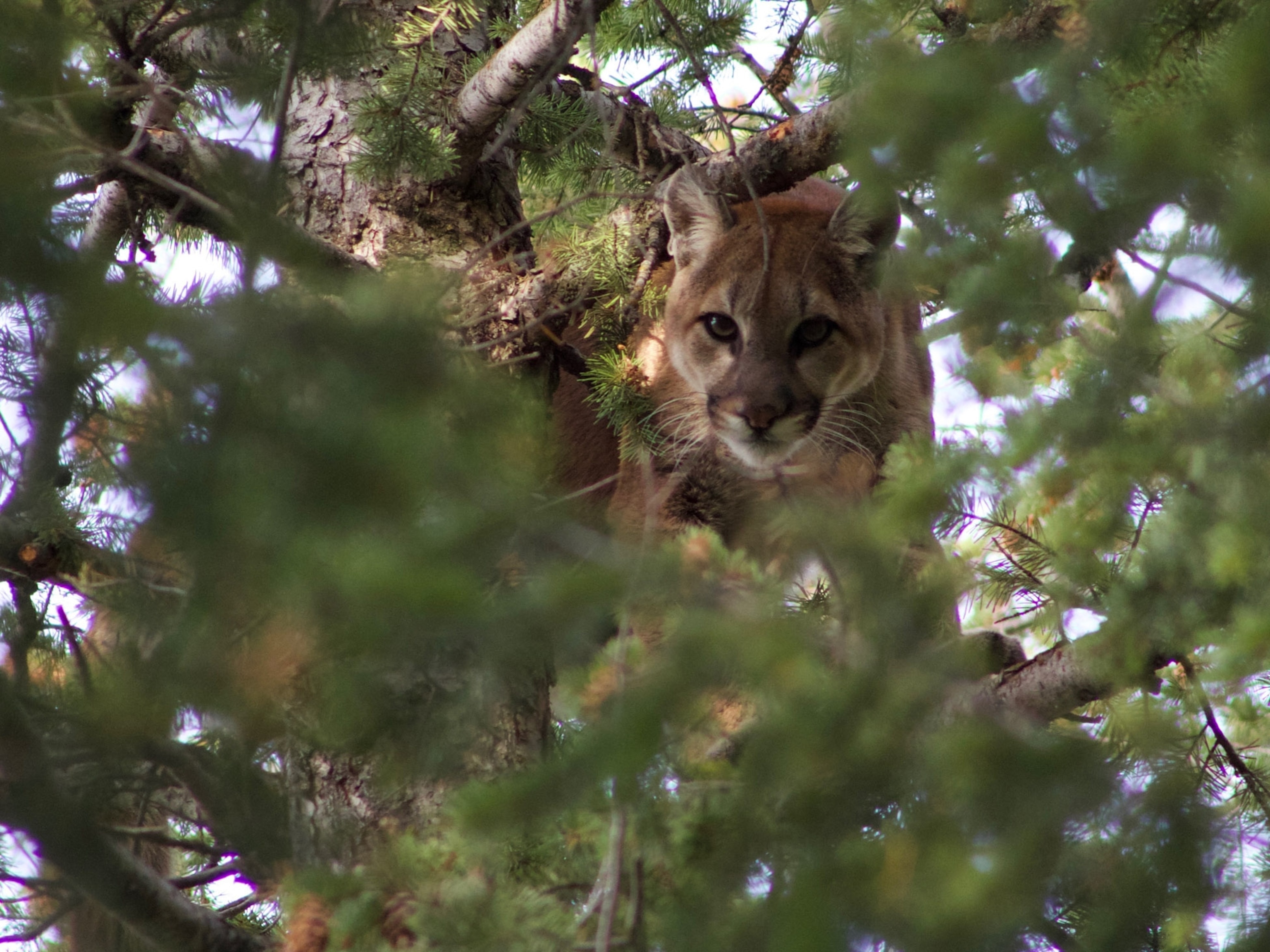Cougars Are Terrified of Human Chatter—And That's a Big Problem
Video shows that even the sound of human voices is enough to terrify cougars away from their hunted prey.
When California's cougars hear political talk radio, they bolt, according to new research from the Proceedings of the Royal Society B.
While many people fear the possibility of running into one of these big cats on a hike or in the wilderness, it turns out cougars are perhaps even more startled by the sound of a human's voice. So much so that they are willing to abandon a fresh kill. (Cougars feed on carcasses for several days.)
Hearing the voices of human "super predators" reduced cougar feeding time by more than half, caused them to flee more frequently, and resulted in them taking longer to return to a kill site.
The population studied by researchers resided in the Santa Cruz mountains, a region that is walled in by the Pacific Ocean to the west, and California's mega-highway 101 to the east. For these cougars, development makes interactions with people all but inevitable.
Building on previous research that found cougar predation in the region had increased by 36 percent, scientists set out to determine specific factors that might lead to this rise.
Using GPS collars attached to cougars, researchers were able to locate the animals' kill sites from December 2015 to June 2016. They then set up sound speakers in areas where cougars had passed the night before. After a mountain lion triggered a motion sensor, a speaker would then play the voices of political talk show hosts Rush Limbaugh, Rachel Maddow, Glenn Beck, or Amy Goodman. During the 29 experiments run with 17 cougars, cougars fled in 83 percent of cases.
Cougars in the control group heard only the sound of frogs after triggering motion sensors and fled in only one case.
"We chose to use talk radio because we wanted high quality sounds," said Justine Smith, one of the study's authors. She noted that they only tested each puma once so as not to cause undue stress.
"We were surprised at the magnitude of the response. This might tell us the fear itself can be useful in allowing them to coexist with us," said Smith.
When more frequently exposed to human voices, Smith noted, cougars are more likely to abandon prey, requiring them to hunt more game, more often. This could sap crucial energy cougars need to raise their young.
"My biggest concern for the [California] population is they’re giving up feeding opportunities," said Smith. "It could have an effect on their ability to successfully rear young."
Cougars generally breed in areas more removed from human populations, venturing closer to developed areas to hunt.
Chris Wilmers, one of the study's co-authors, noted that cougars are fairly adaptable when faced with new environments, but their ability to adapt may be limited by their growing habitat loss and fragmentation.
The species has a range that spans from Canada to the southern tip of Chile. While individuals don't make a journey near that far, they do frequently roam in search of prey. Cougars in cities will often limit their range to 25 square miles, compared to those in the wilderness, whose range spans nearly 370 square miles.
Wilmers and Smith worry that cougars located near California's populous coastal regions may be unable to successfully roam across different areas, decreasing their ability to survive.
"The worry here is that habitats become completely closed in by development," said Wilmers. "They can’t move back and forth across mountains and exchange genes so they would become isolated and go extinct over time."
While cougars as a whole don't face an existential threat, populations have all but vanished along the East Coast. Because the cats are elusive and fairly mobile, Wilmers noted their population numbers have been difficult to track in California.
Both Wilmers and Smith stressed the need to take cougars into consideration before development begins, rather than attempting to address it in an already developed region.
Wildlife corridors connecting protected habitats were options both researchers strongly recommend as a conservation method.
"It's harder to turn a parking lot into a habitat than it is to prevent habitat from becoming a parking lot in the first place," said Wilmers. "Habitat issues have to be addressed now. If we wait any longer they’re going to be gone."




